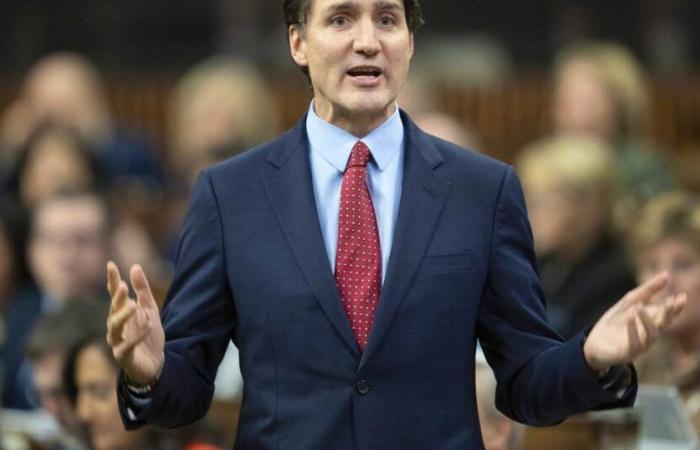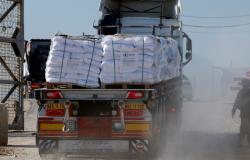Winter has not yet set in in Canada, but an icy wind has just frozen the country: US President-elect Donald Trump threatened his neighbors on Monday to increase customs duties to 25% from January. In shock, the Canadian government is looking for an emergency solution.
KEYSTONE
In the country, whose main partner is the United States, where 75% of its exports go, the news caused a real shock wave. Tuesday morning, the Canadian Prime Minister, Justin Trudeau, wanted to reassure, claiming to have had a “good” exchange with Donald Trump just after the shock announcement of the American president-elect.
“We talked about the intense and fruitful ties between our two countries” and “the challenges on which we can work together,” added the head of the Canadian government.
Meeting from Wednesday
But in the process, he announced a meeting on Wednesday with the prime ministers of the provinces, believing that the country needed to remain united in the face of this threat while many political leaders did not hesitate to dramatize the issue.
Doug Ford, the premier of Ontario, the country’s most populous province, said it was “insulting.” “It’s like a family member stabbing you in the heart,” he said.
His Quebec counterpart, François Legault, spoke of a “bomb” and the “enormous risk” weighing on the economy. As for the Premier of British Columbia, David Eby, he called for a “firm response” from Ottawa.
This announcement is also a new thorn in the side of Justin Trudeau. Candidate for re-election in a few months, the Liberal Prime Minister is well ahead in the polls by his conservative opponent, Pierre Poilievre.
However, the Canadian government claims to have set up a working group months ago to prepare for a Trump 2.0 government. During the Republican’s first term, relations were frosty with Canada.
“Catastrophic”
“If these customs duties are applied, it will be catastrophic,” Ian Lee, professor at Carleton University in Ottawa, told AFP. This could mainly affect the energy and automobile sectors. In terms of employment, nearly 2 million people in Canada depend on exports, he recalls, out of a population of 40 million inhabitants.
He also fears a very sharp fall in the Canadian dollar, synonymous with “import costs which would increase spectacularly, which drives up inflation”. However, he hopes that this is a negotiating tactic on Mr. Trump’s part.
With this in mind, Canada emphasizes that this measure would also be very harmful for American consumers. Ottawa notably recalls that 60% of oil and gas imports by the United States come from Canada.
“Between Canada and the United States, it is a win-win relationship,” declared Deputy Prime Minister Chrystia Freeland, recalling that “Canada is the United States’ largest outlet in the world, ahead of China, Japan, the United Kingdom and France combined.
A “trade war”
The authorities also believe that the immigration problems at the Canada-US border are in no way comparable to those at the border with Mexico – this is one of the problems raised by Donald Trump, along with the issue of drug trafficking , to explain the increase in customs duties.
The Minister of Immigration, Marc Miller, estimated that we were going to “have to sit down” with the Trump government and show them “that we are doing our ‘job’ at the border”.
With the United States, “we are not heading towards a lull” but rather “probably towards a period of trade war”, estimates Geneviève Dufour of the University of Ottawa. “This is a trade war, because the United States is acting illegally against the law and Canada will be forced to do the same. He will have to defend his industry.”
The United States, Mexico and Canada are linked by a three-decade-old free trade agreement, now called USMCA, which was renegotiated under Mr. Trump because he complained about the disadvantage suffered by the American companies, particularly automobile manufacturers.
The day after Donald Trump’s victory, Justin Trudeau assured: “We have been preparing for this possibility for a long time and we are ready.”
ATS






